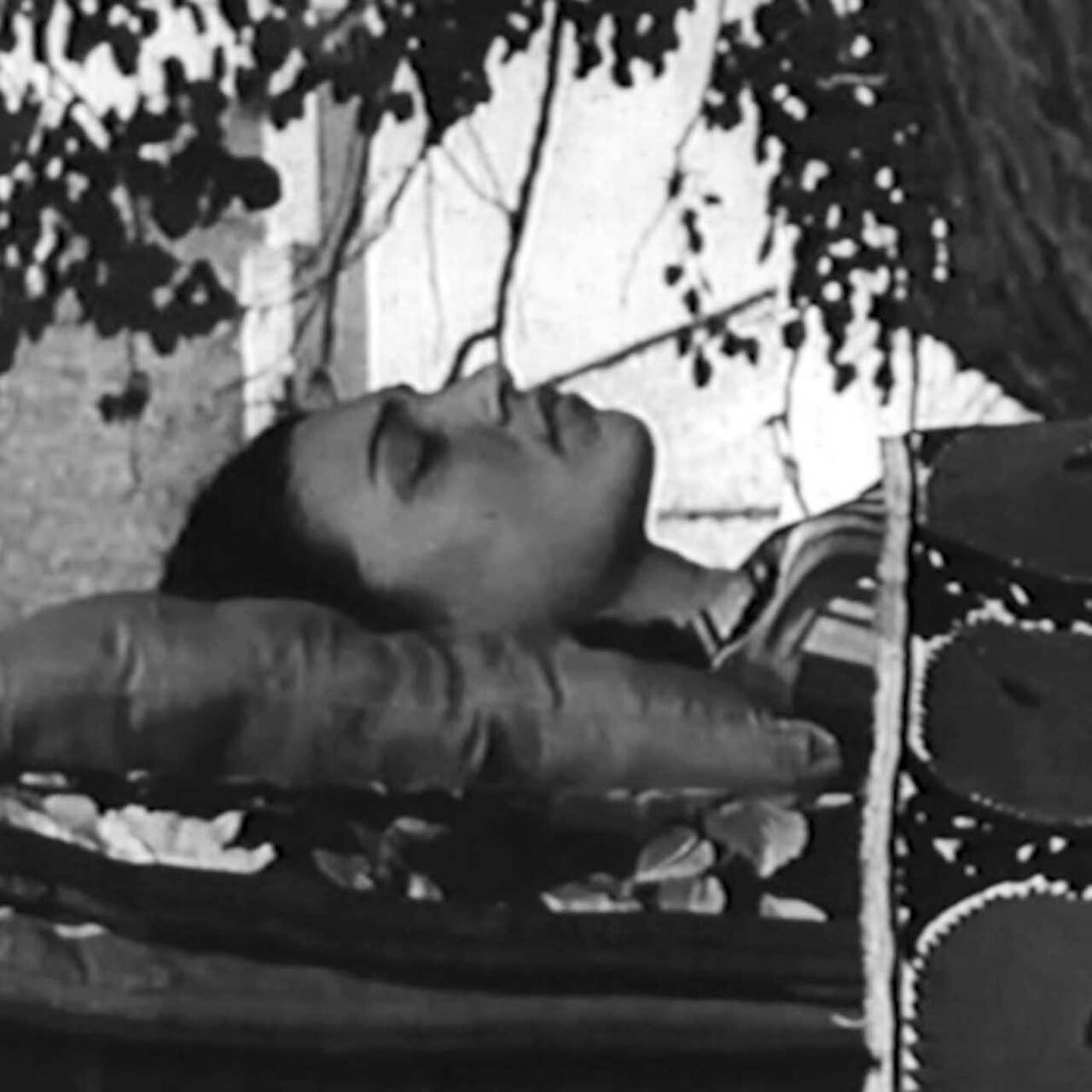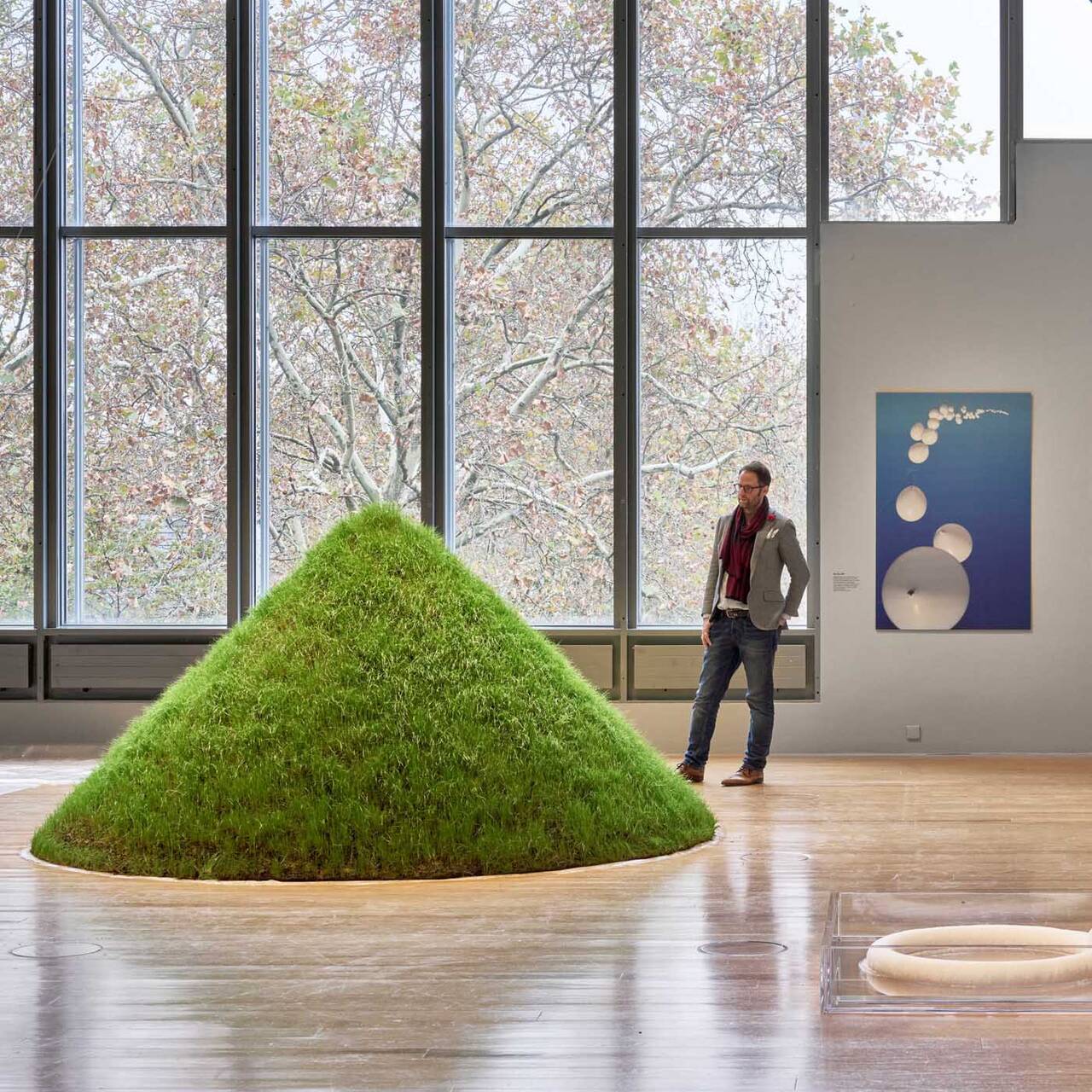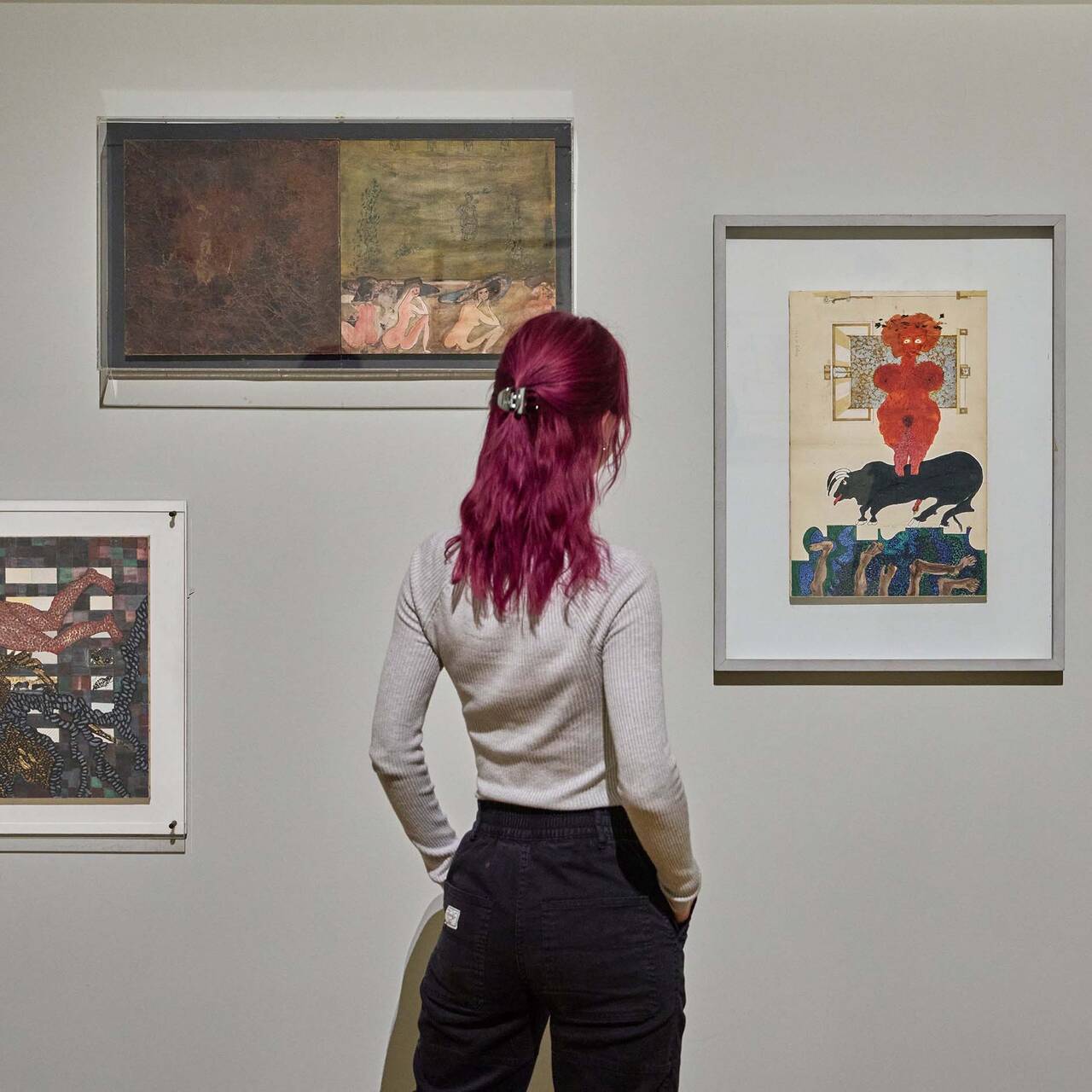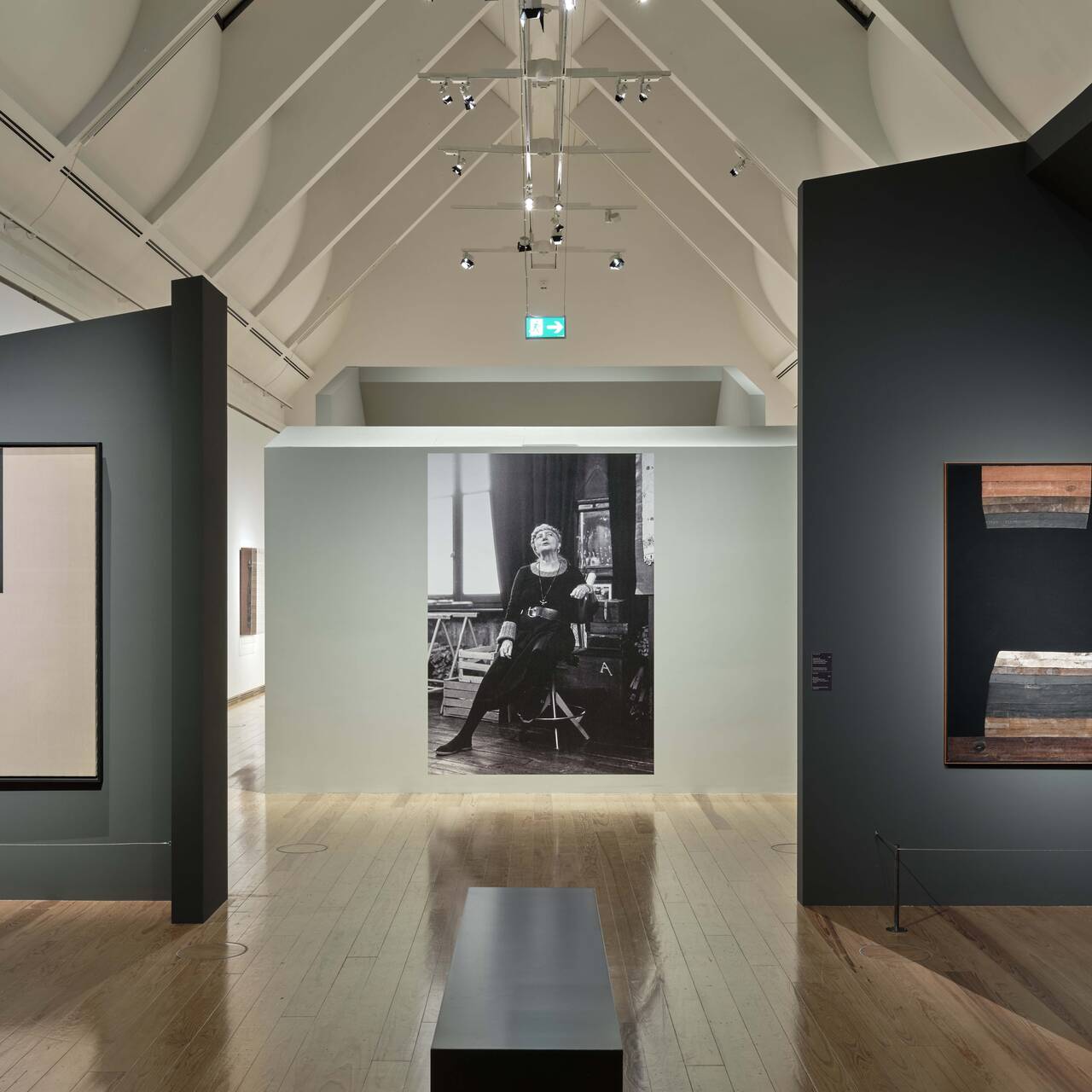What potential does leisure offer? What happens if nothing happens? In the form of “Untitled (Nothing Happens)” (2023), in the latest DOUBLE FEATURE Alicja Wysocka presented an experiment on free time, adulthood, and boredom, and explore the group dynamics between five women friends who have all retired.
“Just to think of all the things people do out of boredom! They study out of boredom, they pray out of boredom, they fall in love, marry, and procreate out of boredom and finally die of it; what’s more,” Georg Büchner has his protagonist Leonce declare at the beginning of his satirical comedy “Leonce und Lena”. And humans are evidently not alone in so doing. Søren Kierkegaard, the Danish trailblazer of existentialist philosophy, gave this rascally account of the origins of boredom in his “Either/Or”: “The gods were bored, and so they created man. Adam was bored because he was alone, and so Eve was created. Thus boredom entered the world, and increased in proportion to the increase of population.” So, what is the state of play when it comes to that human creation, artificial intelligence? Polish artist Alicja Wysocka asked a Chatbot whether it was ever bored and received the sober answer: “As an AI language model, I don’t experience boredom as humans do.”

ON SAUCERS, MERRY-GO-ROUND CARS, AND FINGER GAMES
Her video installation “Untitled (Nothing Happens)” (2023) could best be described as an experiment on free time, adulthood, and boredom. Five women in their prime sit in an outsized porcelain cup which rests in turn on a huge saucer. The huge, old-fashioned tableware is somehow reminiscent of a run-down merry-go-round: After all, in the course of the 30-minute film it rotates continuously, taking the five passengers twirling around with it. The first ten minutes resemble a mixture of meditation and leisure: Close your eyes and dwell on yourself, stare emptily into space, rest your ever-heavier head on your hands. Unexpectedly, the group suddenly go into action, eyes open, the women interact with one another for the first time, stick a finger into the air, and start finger and hand games, laugh in the process, and chat casually.

Alicja Wysocka’s “Untitled (Nothing Happens)” shows both nothing and everything, invites us to lose ourselves in the protagonists’ habits and mood, while at the same time the interaction between the women and the dynamics within the group start almost automatically to take the foreground. In other pieces, the artist has used multimedia installations, art workshops, and joint performances to explore both group dynamics and concepts of community. Projects such as “Solstice/Equinox” (2018–2022) revolve around communal, somehow pagan rituals, in “Lamentations” (2021) Wysocka used Slavic Easter ceremonies to highlight her own traumas. Her exhibition “ZDRÓJ” (2022) concerned itself with the purported healing properties of water, be it in the framework of heathen rituals or as a less esoteric element in the egalitarian tradition of communal Russian/Soviet or Turkish steam baths. In “Untitled (Nothing Happens)”, in a way the audience becomes the invisible part of the group of women going round in circles in their out-sized teacup. Drawing solely on our own imagination and powers of perception, as an audience we take part in a kind of meditation on the potential leisure affords us.
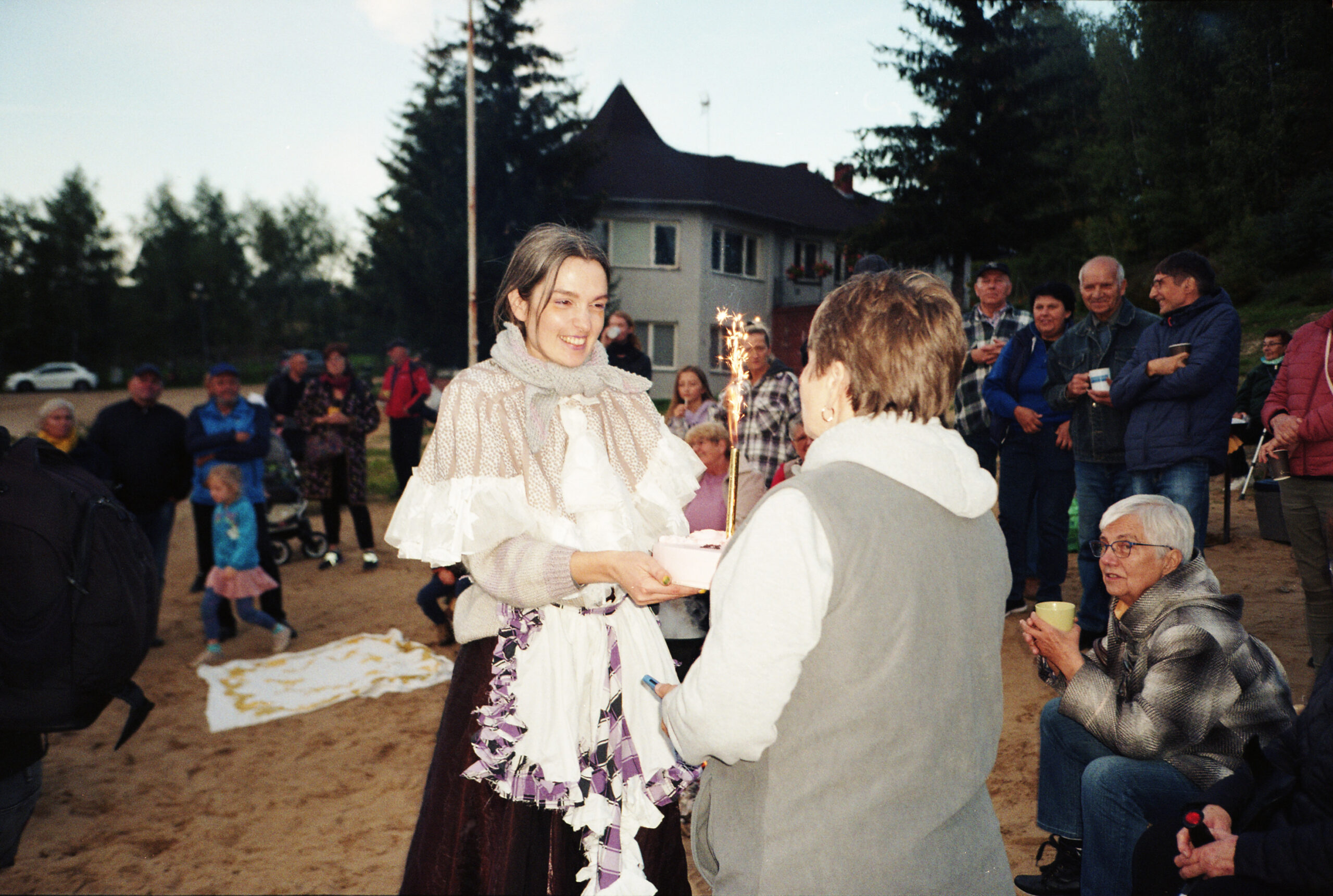
Alicja Wysocka, Equinox, 2022, Photo: Ola Bydlowska. Courtesy of the artist, Image via secondaryarchive.org
THE FOCUS IS EXCLUSIVELY ON RETIRED WOMEN
Alicja Wysocka has chosen “The Company of Strangers” (1990) by Canadian director Cynthia Scott as the second film for the Double Feature. The plot can be summarized in a few words: A group of eight women find themselves stranded in the Canadian wilderness after their bus breaks down. The seven older retirees and the younger bus driver come across an abandoned rustic farmhouse and in the course of the film get to know one another better: Scott shows the protagonists trying to repair the bus, gather food, and handle all the daily tasks that arise when you try to survive in the middle of nowhere. The lay actors largely improvise the personal conversations that evolve in the process, offering insights into their actual, personal lives.
When Cynthia Scott’s wonderful movie comes to an end after a good 100 minutes, then it leaves us with the irrepressible wish that it continue for another 100 minutes. Rarely has cinema presented us with such upstanding, touching and at the same time unsentimentally sincere individuals and in such a dignified way come good on the moving image’s great promise to enable us to intersubjectively witness and follow specific human experiences. In their faces and gestures, indeed in their very beings the actors reflect all manner of aspects of human life. And they achieve this so casually and naturally that the audience hardly notices how rarely this occurs: Both “The Company of Strangers” and Alicja Wysocka’s “Untitled (Nothing Happens)” exclusively place retired women at the very center of their works, women who do not, as is so often the case, merely play a subordinate role in as a vehicle of the story and instead effortlessly carry the whole film.

